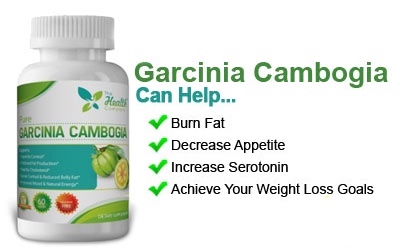
The biological response to stress was a super useful thing for humans back when we had large predators to worry about. Feeling fear triggers the famous flight or fight response, and it makes it easier to get out of a violent, life-threatening situation.
We don't have as many large predators to worry about nowadays, but we do have plenty of things about our modern lives that trigger the same biological fear response. Busy schedules, bills, and strained relationships are just some of the things that cause human beings to experience the fight or flight response in their bodies today.
The stress we experience in our modern lives may be more of the psychological variety than the physical, but it still affects our bodies in the same ways that it did back then. The hormones cortisol, epinephrine, and norepinephrine are released into our system when we feel stressed. This can result in some significant changes in the body including increases in blood pressure, heart rate, and respiratory rate. These effects can all have significant impacts on health. Not only that, but there are specific physiological changes that occur in your digestive tract due to the fight or flight hormones.
Gut-Specific Responses to Stress
When your body is under the effects of the fight or flight response, blood flow is diverted away from your gastrointestinal tract. This is meant to give you more reserves for running away or fighting a battle . . . you don't need to worry about digesting your food when you're trying to escape from a large predator; you need to worry about having enough oxygen flowing to your muscles.
However, when you don't actually have anything to fight with or flee from and the stress response in your body is consistently high, having less blood flowing to your intestinal tract can be quite detrimental to your overall health. These are just some of the ways you can be negatively affected:
- Your metabolism can slow down.
- You may be more prone to weight gain and less able to lose extra weight.
- You probably aren't getting all of the benefits from the nutrients you take in because your gut isn't able to absorb them properly.
Beyond Fight or Flight
Have you ever gotten butterflies in your stomach when you are nervous? Had diarrhea when you experienced severe anxiety? These responses are the result of the direct link between your brain and your gastrointestinal tract, created when your body was being formed in utero. That's right, your brain is attached to your gut and can affect it directly and immediately.
So, between the effects of the fight or flight hormones and the brain's direct effect on your stomach when you're nervous, stress can do a doozy on your digestion. When stress is constant, major problems such as irritable bowel syndrome, stomach ulcers, gastroesophageal reflux disorder, and food allergies can all be exacerbated.
De-Stress for Better Digestion
Then consistent use of stress-relief techniques is important for so many aspects of healthy living, and digestive health is a major one of these. More common ailments are being linked to disorders in the gut all the time. Weight loss can be impeded and weight gain accelerated if the GI tract isn't working properly.
It's important to know how you can help your body deal with stress better, minimizing its negative effects on your health. Here are some techniques that you can implement today to help support your digestive tract.
- Practice relaxation methods. Yoga, meditation, getting out for a quiet nature walk, deep breathing, exercise, and having a massage are all ways to relax your brain, and your body will follow suit. Implementing some or all of these de-stressing techniques can help your digestive tract work well.
- Manage stress. It's probably not practical to think that you can eliminate all stress from your life. But minimizing stress' effects on your gut health isn't so much about getting rid of stress as it is about managing how you respond to it. Prioritize things in your life so you aren't worrying so much about what you can't change or what is of minimal importance. Try to find the most effective ways you can of relaxing and handling stress gracefully.
- Eat good foods. When you have a healthy diet, your digestive tract is more able to deal with setbacks like your body's stress response. If your gut is already dealing with trying to digest unhealthy foods, the added burden of stress will decrease its function even further.
- Add fermented foods to your diet. A healthy gut needs a healthy microbe colony. You can help create and maintain that by regularly eating fermented foods such as kimchi, kefir, and kombucha. You can learn more in the articles "Maintain a Healthy Gut for Healthy Weight Loss" and "Fermented Kimchi and Obesity."
- Relax when you're eating. If you are actively feeling stress, it isn't the time to eat. Perform some relaxation techniques, turn your mind away from the things that are worrying you, and calm down before your meal. Creating a peaceful environment in which to dine, in a quiet setting with peaceful music perhaps, can go a long way toward helping your digestive tract perform better, too.
For more information, take a look at this easy-to-understand video about how stress can affect your digestion and health: "Stress' Effects on Your Digestive Health: VIDEO."
You May Also Like These Articles/Recipes:
Weight Loss: 90% Kitchen, 10% Exercise, 100% Healthy
Maintain a Healthy Gut for Healthy Weight Loss
Lemons and Artichokes: Underused Superfoods
14 Surprising Health Benefits of Sleep
Cauliflower and Pears: High Fiber, Low Carb Dietary Powerhouses


